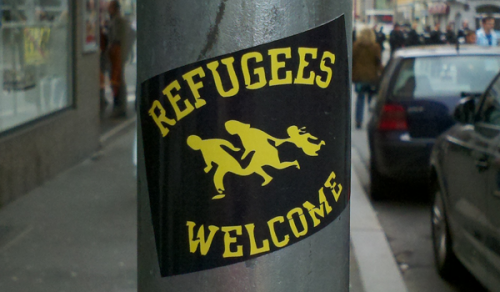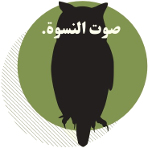
Three years ago, I came to Germany as a student. As of a year ago, I started working in Hamburg as an outreach social worker. In my daily personal and professional interactions, I experience firsthand and witness racist macro- and micro-aggressions, be they subtle, systematic, well intended or backhanded. In the following text, I try to reflect on these aggressions, on the phrases I heard that have stayed with me and still occupy me, and on the violent space that Germany – and Europe – has become.
I am no longer able to remain sane in the face of systematic violence.
Violent waiting rooms, they eat at me. Doctors’ clinics and hospitals, ministries, administrations and “aliens’” offices. The stares. The shifting tones with the shifting colors. “We’ve been here for two months; this is so hard. Three years of war in Aleppo weren’t as hard.” And the little 4-year old girl pushes her head deeper into her mother’s lap and pulls her jacket over her head, ignoring the smiles and waves of strangers in the bus. “She’s just a little sick. She’s tired and hungry; we didn’t expect such a long wait. Baba, tell the nice lady how old you are! Tell her!”
Waiting is a systematic tool of cruelty. I become a bit less human every time I wait at a red light when I can clearly see that there are no cars. So I cross with a skip in my step. I feel like a gladiator who just won his fight against dehumanization, and each time I wonder whether behind their stares of disapproval, people standing on both sides of the road, waiting, are in reality very impressed.
“In Germany, we don’t do things this way. You have to learn that, if you want to live here”. Learn won’t you? Learn the impossible language, learn how not to offend anyone, and learn your place. Learn not to seem entitled or ungrateful. Smile and say thank you. Be the poster refugee for Germany’s Willkommenskultur.*
But the psychiatrist says “this 7 year old child is at the moment incapable of learning.” After a year of waiting for his parents and brother to join from Yarmouk, he lost his focus. “Mrs. X, stop asking about your residency process! You should be grateful that meanwhile, you and your grandson get to live here in safety,” they say. And I wonder whether this room full of social workers and educators have ever heard of survivor’s guilt. Have they ever survived anything?
“Did you come through Italy or Greece?” I…I came in an airplane from Beirut. “By plane! If only we could have come by plane. We could’ve all come together. There was no place on the boat for my parents and my brother.” I should disappear now.
And because at the end of each day I forget how to breathe, I try talking about it. Naming the insanity, pointing at the violence. “You should position yourself clearly!” my colleague says, “remember, you don’t operate alone. You’re part of an institution.” And I burst out crying. I am part of an institution! How could I have ever allowed my social work to be associated with the German government and its many arms? This doesn’t help, I say. “Can you believe in the universal powers? that there are forces outside of you, that you do not carry the responsibility by yourself?” reformulates the work therapist. Are they kidding me? “I brought my cat with me from Lebanon. My cat traveled with me by plane,” is the only answer I can think of.
And you know it’s bad when no amount of cat videos can cheer you, and no silly series can numb your mind long enough to help you fall asleep. I am instead tempted to click on pseudo-scientific Facebook links: “7 subtle signs of depression you shouldn’t ignore.” But I live a life of privilege. I am not depressed. I am simply no longer able to justify sanity in the face of systematic violence. And I hate those who try to rationalize my anxieties, to help me “think” my way out of them.
I could probably grow a thicker skin. But my skin is still marked with a thousand scars from that one day, a year and a half ago. This will be the last time they silence me and sheepishly protect the abuser, I thought. So I shouted, and I screamed at them, and I cried and fell apart. And I called for my mom because no one else could make it better. Then I woke up to a spotted body. “It’s an auto-immune disease. Your body mistakes you for the enemy and attacks you, leaving these marks on your skin.” My body isn’t making any mistakes: bodies have the right to revolt against the systematic violence we submit them to. I apologized repeatedly, promised to be kinder, but my body was not in a forgiving mood.
Like my body, I am overwhelmed by the million subtle brutalities of everyday’s life, the absolute terror of the new normality. I write about it in a foreign language because I cannot allow myself to “feel” it in Arabic without breaking to pieces. Insanity could be my way out. To no longer be expected to have a good night sleep, eat well and function. To finally face the world the way we should all be facing it: with utter contempt and revolt.
* Wilkommenskultur: Literally “ Welcoming Culture” or “a Culture of Welcome,” a term used in Germany in association with the recent arrival of refugees.
Publisher:
Section:
Category:






